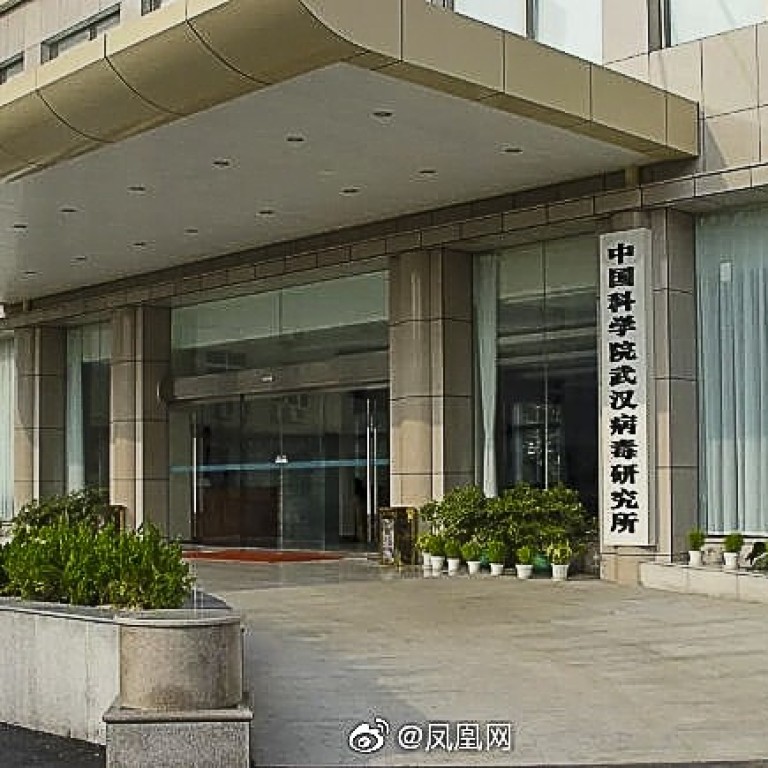
Chinese research lab denies rumours of links to first coronavirus patient
- Speculation that a woman supposedly at the institute is ‘patient zero’ is false, laboratory says
- Authorities maintain that the most likely source was a market in Wuhan
In a statement on Sunday, the Wuhan Institute of Virology denied that one of its employees was the outbreak’s “patient zero”.
“Recently there has been fake information about Huang Yanling, a graduate from our institute, claiming that she was patient zero in the novel coronavirus,” the institute said.
It said it had verified that the claim was not true.
It said Huang was a graduate student at the institute until 2015, when she left the province and had not returned since. Huang was in good health and had not been diagnosed with disease, it added.
The disease, now known as Covid-19, has sickened some 60,000 people around the world and killed more than 1,500, most of them in Hubei province in central China.
So far, the first patient with the illness has not been publicly identified.
Coronavirus weaker than Sars but may share link to bats, Chinese scientists say
While there is no evidence to support the claims, new central government regulations covering state biotechnology laboratories have helped fan the speculation.
On Saturday, the ministry issued a directive calling for improved management of viruses by all biological labs, and for the facilities to ensure biological safety.
Chinese authorities have said the virus is believed to be from a seafood market in Wuhan, after a cluster of patients linked the market were identified in December.
In the paper, the researchers, seven of whom work at Wuhan Jinyintan Hospital, said the first patient had no exposure to the market and there was also no epidemiological link between the first patient and the later cases.
The research was based on data from the first 41 patients with confirmed infections.
Daniel Lucey, an infectious disease specialist at Georgetown University in Washington, said it was possible that the virus “came into that marketplace before it came out of that marketplace”, according to Science magazine.
Frustrated and angry at the authorities’ response to the outbreak, some members of the public have been unwilling to accept the official line about the probable source. Much of the speculation has been focused on the Wuhan Institute of Virology, the only laboratory to be graded Biological Security Level 4, the highest level of biosafety precautions, on the Chinese mainland. The laboratory was designed to treat infectious diseases such as Ebola.
The unverified theory of a biological leak from the institute so widely shared online that Shi Zhengli, a lead researcher at the institute on bat-related viruses, said on her social media account that she “guaranteed with her own life” that the outbreak was not related to the facility.
China did have an outbreak of severe acute respiratory syndrome, or Sars, due to a leak from a laboratory in 2004, killing one person and infecting nine others, according to state media.
Chinese authorities said that the leak was a result of negligence and five senior officials at the Chinese Centre for Disease Control and Prevention were punished.
Purchase the China AI Report 2020 brought to you by SCMP Research and enjoy a 20% discount (original price US$400). This 60-page all new intelligence report gives you first-hand insights and analysis into the latest industry developments and intelligence about China AI. Get exclusive access to our webinars for continuous learning, and interact with China AI executives in live Q&A. Offer valid until 31 March 2020.

